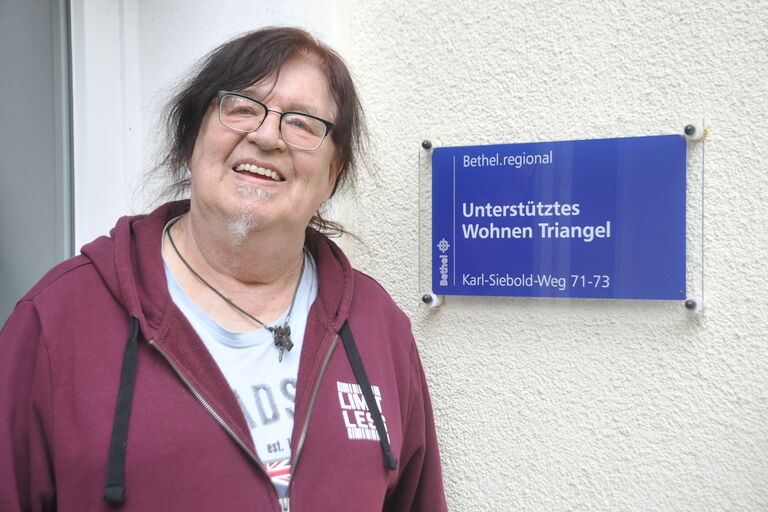How are you doing? In the hustle and bustle of everyday life, this question often degenerates into an empty phrase. Not so when Fritz Hillebrenner asks it. He is a recovery counsellor in Bielefeld-Bethel and is genuinely interested in the well-being of the mentally ill people he looks after. This activity is also part of his own therapy. "I think it's important to be able to tell someone how you feel and what you think," he emphasises.
Together with nursing assistant Claudia Hülsmann, Fritz Hillebrenner runs a so-called recovery group. The word recovery comes from English and means recuperation or recovery. This is exactly what the meetings at the Triangel supported living centre on Karl-Siebold-Weg in Bethel are all about. The meetings, which take place every two weeks in the residential group, are a building block of therapy for the clients involved. They paint and read together, listen to music and play games. And talk to each other about how they are doing.










